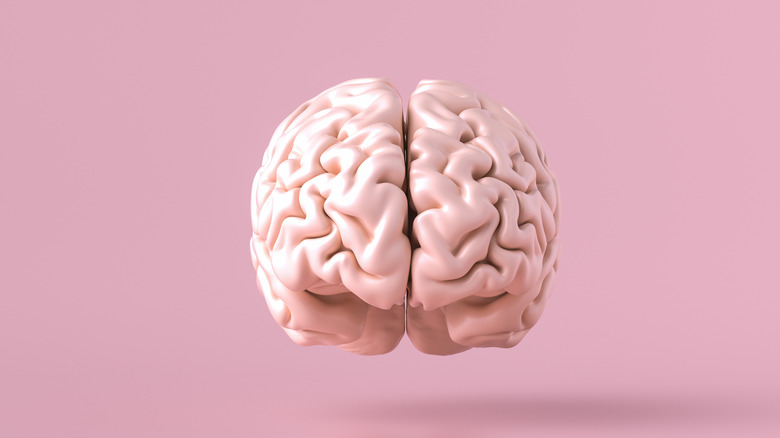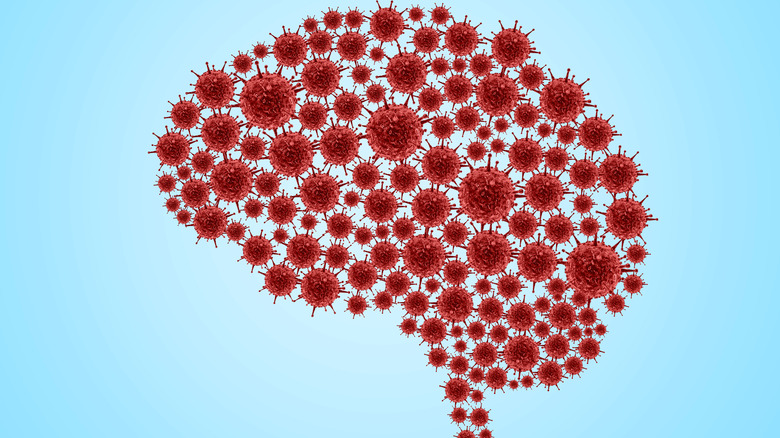
There’s no simple way to put it: Living through a global pandemic isn’t easy, and it can have profound, long-lasting effects on us. It even affects dogs and Girl Scout cookie sales, and most importantly, the people who contracted the coronavirus and the families of those who have died from it. For everyone living through the pandemic, one consequence we’re all likely feeling is the phenomenon known as “pandemic brain.” This term refers to the mental fogginess that we feel during this time, which is in part due to us forgetting what it means to live a “normal” life (via The Atlantic).
Pandemic brain makes everyday life harder. The fogginess makes it hard to focus, and being inside your home all the time only makes it worse. People working from home or students studying from home feel its effects greatly, but those that work outside of the home feel its effects, too. “Everywhere I turn, the fog of forgetting has crept in,” Peter Marlow writes for The Atlantic before citing examples of friends who have forgotten how to tie a tie or who can’t imagine ever returning to their pre-pandemic morning routine. Everything feels lost, and when things feel pointless, motivation goes down the drain. This is just one symptom of pandemic brain.
Pandemic brain is reversible

What’s perhaps most shocking about pandemic brain is that mental fogginess isn’t new. According to WBUR, our brains have been working harder than ever since the beginning of the 20th century, and our brains can only handle so much cognitive pressure. While our brains may be at their limits, experts explain that we can offload some cognitive pressure by spending time being physically active and pouring more energy into our interpersonal relationships. These things will keep our minds healthy.
The best news regarding pandemic brain is that it’s reversible. According to The Guardian, our brains are metaphorically malleable enough to revert back to their pre-pandemic states, but it will take time and patience. They also explain that the root of pandemic brain may be cortisol, the chemical released by the body when it’s under stress. After all, the pandemic has been nothing if not one prolonged stressful moment. Even if we’re not aware of it, we’re likely feeling the weight of and immense grief from all the illness and death, not to mention our entire lives being uprooted. Too much cortisol in the body can result in issues with your memory and sleep, and can even lead to increased risk of heart disease and mood disorders (via The Guardian).
The pandemic has had these effects on our brains

Pandemic brain, in addition to being caused by cortisol, is the direct result of the pandemic’s effects. Stress can literally change the shape of our brains. “We’ve seen changes in volume in the brain’s temporal, frontal, occipital and subcortical regions, the amygdala, and the hippocampus in people who are socially isolated,” Dr. Barbara Sahakian told The Guardian. These shifts in brain shape can — you guessed it — mess with your memory and focus, among other things.
However, doctors are quick to remind us that we will bounce back. Our brains can shift back to the way they were before the pandemic — it’s simply a matter of time. In fact, doctors told The Guardian that our brains have innate “resilience.” We must give them post-pandemic time to adapt back to normal, and in the meantime, we need to pour ourselves into things we’re passionate about and into our relationships. These things will help us feel a sense of normalcy, helping our brains at the same time.
Source: Read Full Article
